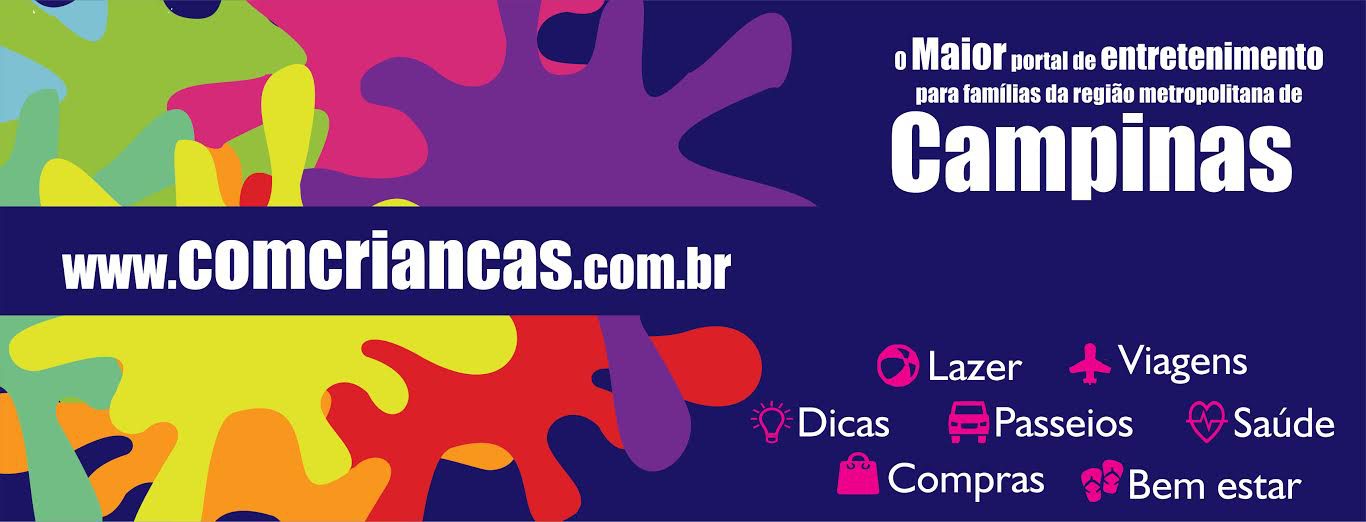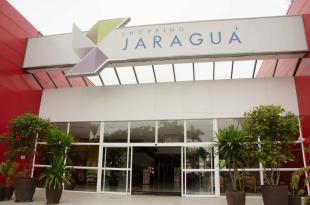5 cool covered commodities produce
0000010333 00000 n The United States complied and on May 23, 2013 issued an amended COOL requirement concerning meat and fish commodities. Upon request, these records must be provided to any authorized representatives of the USDA within 5 business days of the request and may be maintained in any location. The Secretary of Agriculture at the time, Secretary Vilsack, sent a letter shortly after the final rule was announced, encouraging meat and food industries to voluntarily adopt the new labeling changes. Either "Netherlands" or "Holland is an acceptable abbreviation for The Netherlands. Country of origin information for the remaining covered commodities must still be conveyed to buyers and consumers. Wild means naturally born or hatchery-originated fish or shellfish released in the wild, and caught, taken, or harvested from non-controlled waters or beds. mandatory COOL for all covered commodities except wild and farm-raised, fresh and frozen fish and shellfish until September 30, 2006. Asparagus; beans, black; beans, great Northern; beans, kidney; beans, lima; beans, navy; beans, pinto; beets, garden (roots and tops); beets, sugar; cashews; cherries, sour; chickpeas; cocoa beans; coffee beans; collards; corn, sweet; cranberries; dates; dill (seeds and weeds); eggplants; figs; ginger; hazelnuts; horseradish; lentils; okra; If you need assistance accessing any of our content, please email the webteamor call 662-325-2262. Eileen Haraminac, Michigan State University Extension - More consumers are checking product and food labels after recent imported product issues and continued health education and awareness campaigns. ts0}Xv|&pmTpDhID7h1pf$(/p-\\!|M?#s{K(iN_vkO~\;lf~U^LyJlZ1HAvmr1]z^g2b*xuVFmt\Y?!64@5G5\HAjl R@Q"(O`j4XjwM"T3//'WTS[L&FN'RkYcF%yO$ vI&@V@sb~2 >j(Z#WM$VZ>Avv !Otr>^T&K{H7s7wh The U.S. label will state: Born, Raised, and Slaughtered in the United States. For meat derived from animals born outside the United States, one type of label could state: Born in Mexico, Raised and Slaughtered in the United States. For meat derived from animals imported into the United States for immediate slaughter, one type of label could state: Born and Raised in Canada, Slaughtered in the United States.. What is a perishable agricultural commodity? 1= ~i are also exempt. The https:// means all transmitted data is encrypted in other words, any information or browsing history that you provide is transmitted securely. Since the repeal of COOL requirements for beef and pork in 2016, some consumer advocates and livestock producers have called for reinstituting labeling requirements. A producer affidavit is acceptable evidence to initiate the origin claim, but it must be made by someone having firsthand knowledge of the origin of the animals and identify the animals unique to the transaction. The COOL legislation defines retailer as subject to the licensing requirements of the Perishable Agricultural Commodities Act of 1930 (PACA). For labeling consistencies, labels may not use or and and/or when declaring the origin. The labeling law requires certain retailers, mostly grocery stores and supermarkets, to identify the country of origin of certain foods such as perishable agricultural commodities (fresh and frozen fruits and vegetables), peanuts, pecans, ginseng, macadamia nuts, wild and farm-raised fish and shellfish, and muscle cuts and ground chicken, goat, Fresh Produce Safety program, part of the Department of Horticultural Sciences at NCSU. Generally, consumers only see the label if the imported goods arrive at the border in retail-ready packaging. 2, Part 46, page 254290. Chicken stock and yeast are flavor enhancers. Regulations for meat, fish, and shellfish (7 CFR part 65) amended the definition of retailer to include any person subject as a licensed retailer under the Perishable Agricultural Commodities Act (PACA) (7 U.S.C. For example, labels for animals born, raised, and slaughtered exclusively in the United States would read, Born, Raised, and Slaughtered in the United States.Other labels might read, Born and Raised in Canada, Slaughtered in the United States or Born in Mexico, Raised and Slaughtered in the United States. At the time the amendments became effective, processors were given a six-month compliance window. This site is also protected by an SSL (Secure Sockets Layer) certificate thats been signed by the U.S. government. Dairy Products and Milk $6.37 Billion. While the COOL law contains an expressed exclusion for an ingredient in a processed food item, many imported items still must be labeled with country of origin information under the Tariff Act of 1930. 302 0 obj <>stream Many agricultural products are on the list, including vegetables, fruits, nuts, berries, and live or dead animals, fish, and birds. The .gov means its official. Consumers can obtain more information by logging into the Agricultural Marketing Services website. 0000003424 00000 n USDA regulations require COOL on the immediate containers of imported meat. Under the authority of the Federal Meat Inspection Act, 21 U.S.C. This browser does not support PDFs. In the case of muscle cuts of meat, suppliers must include the production step information (born/hatched, raised, and harvested). As for the recordkeeping requirements, upon request by the USDA, suppliers and retailers must provide the USDA with documents allowing verification of the products origin and method of production within five (5) days. The affidavit must identify the animals unique to the transaction. To qualify for the J List exception, these agricultural products may only be processed to the extent necessary for transportation. 0000005156 00000 n A class action alleges the Kroger Co. and Albertsons have falsely advertised certain imported beef and cattle products as a "Product of the U.S.", New to ClassAction.org? In August of 2013, Canada and Mexico challenged the revised COOL requirements ata WTO dispute panel. Precious metals include gold, silver, and platinum. Last Updated on October 9, 2020 4:55 PM. Covered commodities include muscle cuts and ground products of beef (including veal), lamb, chicken, goat, and pork; farm-raised fish and shellfish; wild fish and shellfish; perishable agricultural commodities (fresh and frozen fruits and vegetables); ginseng; and pecans, macadamia nuts, and peanuts. This practice, the case avers, amounts to a significant deception of consumers, who are presented not with the full picture of a beef products origins but rather false labels; red, white and blue advertisement graphics; and other misleading representations. 7 C.F.R. However, a 2016 appropriations bill modified the products covered so that COOL laws no longer apply to muscle cuts of beef or pork. Don Tyson Annex (DTAN) 0000102362 00000 n The United States Department of Agriculture regulates Country of Origin Labeling (COOL) a labeling law that requires retailers to notify their customers with information regarding the source of certain foods, called covered commodities. Imported bulk meat is often processed inside a domestic plant. State legislatures have taken up the issue as well. Miso. 7 C.F.R. As defined by PACA, a retailer is any person engaged in the business of selling any perishable agricultural commodity at retail. NC State Extension does not guarantee the accuracy of the translated text. However, meat packers are not allowed to use visual inspection for origin verification. MSU Extension Administration :Muscle foods: Extension and Research: meat science, meats processing, STEM Science Technology Engineering and Math, Thad Cochran Agricultural Leadership Program TCALP, Mississippi County Elections: Election Prep 101, Extension Center for Economic Education and Financial Literacy, Creating Healthy Indoor Childcare Environments, Plant Diseases and Nematode Diagnostic Services, Food Science, Nutrition and Health Promotion, Extension expert named to USDA food safety committee, Check canning equipment before harvest begins, Avoid food-borne illness, handle Easter eggs properly, Aging, limited food shopping options can impact nutrition, Food pantries help fill gap when stores close, Freezing Fruits & Berries 4-H Food Preservation Project Unit 1, Canning Fruits & Tomatoes 4-H Food Preservation Project Unit 3. 60.400(b)(1). endstream endobj 306 0 obj <>stream The requirements for listing the country of origin for beef and pork products were specifically outlined in the COOL law. Copyright 2020 by Mississippi State University. 7 C.F.R. Retail establishments such as full-line grocery stores, supermarkets and warehouse club stores, who are subject to the licensing requirements under the Perishable Agricultural Commodities Act (PACA), are required to provide COOL information to consumers at the point of sale. A minor process that leaves the identity of the imported product intact though will result in a consumer being the ultimate purchaser. The COOL requirements were quickly faced with legal challenges from within the World Trade Organization (WTO). 2007. Only products comingled for resale may provide multiple countries of origin. The final COOL regulations went into effect on March 16, 2009. Working hand-in-hand with our partners at N.C. A&T and 101 local governments, we conduct groundbreaking research that addresses real-world issues in communities across the state. Another example would be different-colored sweet peppers combined in one package. April 13 Notice to Trade -USDA Announces Labeling Flexibilities to Facilitate Distribution of Food to Retail Locations. If requested, these records must be provided to any authorized representatives of the USDA within 5 business days of the request. Before sharing sensitive information online, make sure youre on a .gov or .mil site by inspecting your browsers address (or location) bar. Defining a Farm to understand how the PSR applies to your farm. Country of Origin Labeling (COOL) is mandatory under U.S. food labeling laws enforced by the Department of Agriculture (USDA), the lawsuit explains. According to the complaint, the USDA requires retailers to notify customers with information concerning the source of certain foods, called covered commodities.. Retailers are required to get a PACA license when they purchase more than $230,000 of fresh or frozen produce a calendar year. 2009. Suppliers who are responsible for the country of origin and/or method of production claim(s) are expected to have the documentation to substantiate those claims. If mixed-origin meat covered commodities and direct for slaughter animals are commingled, the resulting product may carry the direct for slaughter origin claim as applicable (e.g., Product of U.S. and X). For example, ground chicken can be labeled as Product of U.S. Ground meats derived from raw materials sourced from multiple countries may be commingled; for example, ground goat may be labeled as Product of U.S. and Canada. Ground goat must be labeled with the names of all the appropriate countries. 25-61-19, Country of Origin Labeling of Agricultural Products. If the package or display contains product of multiple countries, then all countries must be on the label, for example: Product of Mexico and Chile. The order of the country names does not matter. The 2008 Farm Bill allowed domestic and imported perishable agricultural commodities, macadamia nuts, peanuts, pecans, and ginseng to use state, regional, or locality label designations in lieu of the country of origin. From the complaint: The lawsuit, which was removed to New Mexico federal court on October 8, looks to cover all consumers in the United States who bought Kroger and/or Albertsons beef products during the applicable statute of limitations period for personal use. Suppliers who deal directly with retailers are responsible for providing the retailer with the documentation relating to country of origin and methods of production. Retail firms such as fish markets and butcher shops, as well as small stores that do not sale the threshold amount of fresh produce, are exempt from country of origin labeling requirements. While agricultural commodities remained exempt from COOL requirements for many years, the 2002 Farm Bill, Pub. It is not allowable to label meat derived from livestock of U.S. origin with a mixed-origin label if only U.S. meat was produced during the production day. The interim final rule for fish and shellfish was published by USDA on October 5, . 0000040977 00000 n As a rule for determining what is reasonably possible, when a raw material from a specific origin is not in the processors inventory for more than 60 days, that country must no longer be included as a possible country of origin. Discrimination in university employment, programs, or activities based on race, color, ethnicity, sex, pregnancy, religion, national origin, disability, age, sexual orientation, gender identity, genetic information, status as a U.S. veteran, or any other status protected by applicable law is prohibited. Every year, the California Department of Food and Agriculture gathers data on the economic value of each of the main crops in California. Extension Service of Mississippi State University, cooperating with U.S. Department of Agriculture. Investors. USDA Secretary Vilsack also sent out guidance that the USDA will no longer enforce the COOL regulations for beef and pork in accordance with the law. Rosemary is an enhancer when it is added to meats for color preservation. These changes included the addition of chicken, goat, macadamia nuts . CRB checked, CSCS certified. The COOL rule does not stipulate the exact size or placement of COOL declarations, only that the statements be legible and placed in a conspicuous location where they are likely to be read and understood by a customer. The rule provides various options for presenting country of origin declarations at retail sale. Country of Origin Labeling (COOL) is a labeling law that requires retailers, such as full-line grocery stores, supermarkets and club warehouse stores, to notify their customers with information regarding the source of certain foods. hLK048BFvSq)bUeqyIf55Xu]m]e&9Xg/*[p3\`M*"Ebb#owz\)v)vDS9cY`3qW? hU[o0+~lUTU!T1)C F For pre-labeled products, retailers are expected to keep documentation on the products country of origin and method of production for the time they retain the product. Camp Lejeune residents now have the opportunity to claim compensation for harm suffered from contaminated water. The USDA does have the authority to require a verifiable audit trial for country of origin information. Retailers who purchase an aggregate of $230,000 of fruits and vegetables per year are subject to PACA licensing requirements. Commodity is a TANGIBLE asset that is typically relatively HOMOGENEOUS in nature. ), polishing, waxing, adding sugar, and adding ascorbic acid (to retard oxidation) do not change the character of commodity into a processed food item. How long are retailers and suppliers required to retain records that verify country of origin/method of production information? If meat covered commodities derived from the United States and mixed-origin animals are commingled during production, the resulting product may carry the mixed-origin claim (e.g., Product of U.S., Canada, and Mexico). Items such as fresh herbs, apples, strawberries, raspberries, blackberries, and other items covered under PACA regulations are subject to COOL labeling. 134.33 (2003) (J-List exceptions). These brands support the environment with how they make candy . Perishable Agricultural Commodities Act of 1930 (PACA). 7 CFR Vol. The Farm Security and Rural Investment Act of 2002 and the 2002 Supplemental Appropriations Act established COOL. The initial importer must keep records tracking the commodity from its entry into the United States to the time it reached its immediate recipient for a period of one year from the date of transaction. Copyright 2023 Mississippi State University Extension Service. Code Ann. 2549 N. Hatch Ave. The same thing that connects it to every corner of North Carolina: NC State Extension. These continuous affidavits must be linked to some record or other form of documented evidence that identifies the animals unique to a transaction. Located in Fayetteville, Arkansas, the National Agricultural Law Center serves the nations vast agricultural community and is a key partner of the USDA National Agricultural Library. Federal government websites always use a .gov or .mil domain. Mexico and Canada threatened to impose over 1 billion dollars of tariffs against the United States unless labeling was removed. A proposed class action lawsuit alleges the Kroger Company and Albertsons have since 2015 falsely advertised beef imported into the United States post-slaughter as a Product of the U.S., or with some similarly inaccurate label, to give consumers the impression that the product theyre buying is from an animal born, raised and slaughtered on American soil. Learn More About NC State Extension, We have several topic based email newsletters that are sent out periodically when we have new information to share. Suppliers to the final retailers are also required to provide necessary country of origin information to the retailer to ensure compliance with the law. UgbVdUJ3>UG7xaxu3{mX' bXQ_%jD5WnJM+Qs%j$J^6$JB]T=UYSa:^:nz/ i\l born and raised in Alaska or Hawaii and transported for a period of no more than 60 days through Canada to the United States; once present in the United States, these animals must remain continuously in the country. What stores are required to comply with COOL? Restaurants and other food service establishments (cafeterias, lunchrooms, institutions, etc.) If no markings are found that would indicate that the animal could be of foreign origin, then the animal may be considered to be of United States origin. Produce Safety Rule Covered Produce Defined. 60.400(b)(3). The COOL law adopted the definition of retailer from the Perishable Agricultural Commodities Act of 1930, 7 U.S.C. 60.400(a)(2). 60.400 (c)(2). However, if a packer is using imported (D category) variety meats in the manufacture of ground beef, that imported origin must be claimed in the final products COOL declaration (e.g., origin declaration for ground beef that contains cheek meat imported from Canada must include Canada). The most recent 2016 regulation applies COOL laws to lamb, chicken, and goat meat, perishable agricultural commodities, macadamia nuts, pecans, peanuts, and ginseng. Items that are imported in consumer-ready packages also are required to be labeled with country of origin information. 7 C.F.R. What are COOL covered commodities? In 2015, as a result of this pressure, President Barack Obama signed an appropriations bill which removed COOL requirements for beef and pork. %PDF-1.6 % Without an audit trail, the products origin will be declared by U.S. Customs and Border Protection (CBP). Phosphate is a salt. The Agency cannot prohibit the commingling of like products sourced from multiple vendors. However, COOL regulations and requirements are still in full effect for the following products: chicken, lamb, goat, farm-raised and wild caught fish and shellfish, perishable agricultural commodities, peanuts, pecans, macadamia nuts, and ginseng. However, a provision in the COOL law explicitly prohibits the USDA from using a mandatory identification system to verify the country of origin of a covered commodity. N.C. Fresh Produce Safety Task Force The WTO Appellate Body issued a ruling in June of 2012, which upheld the panels earlier ruling as to the preferential treatment of beef and pork violations, but reversed the findings related to fulfilling legitimate informational objectives. 0000040909 00000 n In general, abbreviations are not acceptable. The effect of this proposed rule would be limited to a small number of firms that produce, process, and market venison. Retailers have the primary burden of labeling procedures for consumers under the COOL law. In contrast, the indexed lines 0000102050 00000 n Can abbreviations be used in COOL declarations? The suit emphasizes that something labeled as a Product of the U.S. generates confidence in a consumer that what theyre about to buy is from an American. M3i2rqA[0EJqKS$wXuRD0dWWtDg~-'71S. Appropriate labeling for imported perishable agricultural commodities can be in the form of a statement such as Product of Country X, Grown in Country X, or Produce of Country X. The country of origin declaration may include only the name of the country, or it may be in the form of a checkbox provided it conforms to other federal labeling regulations (i.e., CBP, FDA, USDA). Product of the U.K. is acceptable for commodities originating from the United Kingdom of Great Britain and Northern Ireland.
El Palo Con Coco La Diosa,
Dana Katz Funeral,
Articles OTHER



